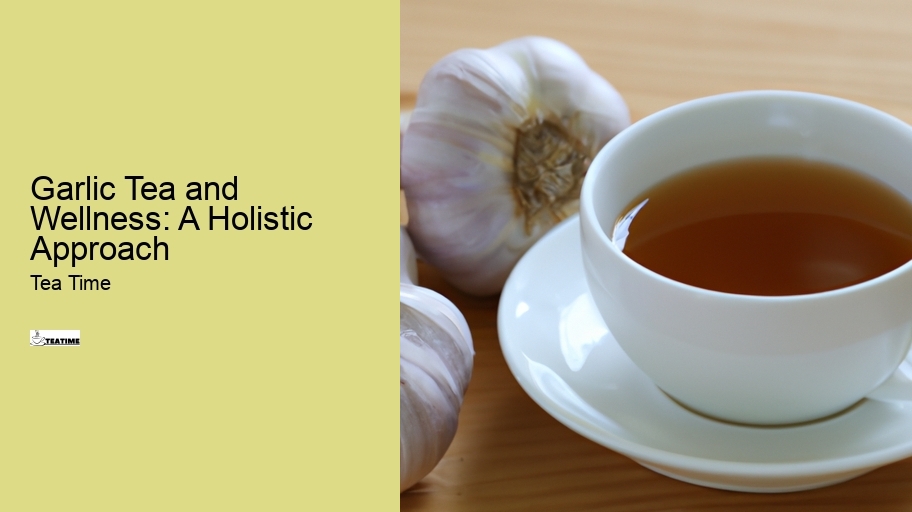

The use of garlic in herbal teas has a storied history, tracing back to ancient civilizations. Recognized for its medicinal properties, garlic was a staple in traditional healing practices across various cultures. It was particularly valued for its ability to treat infections, improve digestion, and boost overall health.
In many traditional medicines, garlic was considered a powerful remedy due to its natural antiseptic, antimicrobial, and immune-boosting qualities. Herbalists and healers often prescribed garlic tea as a treatment for respiratory ailments, digestive issues, and even to ward off plagues and infections.
Today, the historical use of garlic in herbal teas continues to be validated by modern research, which supports its health benefits. The enduring presence of garlic tea in both traditional and contemporary wellness practices speaks to its effectiveness as a natural, health-promoting beverage.
Brewing TechniquesPairing the right foods with garlic tea can enhance the overall culinary experience. For a harmonious combination, consider light and savory snacks such as crackers, cheese, or olives. These pairings can balance the robust flavor of the tea and make for a delightful snack or light meal.
For those with a sweet preference, pairing garlic tea with honey-infused bread or pastries can create an appealing contrast. The sweetness of the honey complements the pungent taste of the garlic, offering a unique flavor experience. Athletic Performance Fresh fruits like apples or pears can also be a refreshing accompaniment.
Experimenting with different food pairings allows for a range of culinary explorations with garlic tea. Whether it's a sweet or savory preference, finding the right food combination can elevate the enjoyment of this healthful and flavorful beverage.
Garlic tea is a natural choice for detoxification. Its compounds, especially allicin, have detoxifying properties that help cleanse the body. By stimulating liver function and aiding in the elimination of toxins, garlic tea supports the body's natural detoxification processes. Regular consumption can contribute to overall liver health and toxin removal.
The antioxidants in garlic tea also play a crucial role in detoxification.
Incorporating garlic tea into a detox regimen can be simple and effective. It's recommended to drink it on an empty stomach for maximum benefits. Detoxification This natural beverage is a gentle yet powerful way to support your body’s detoxification, making it a valuable addition to a healthy lifestyle.
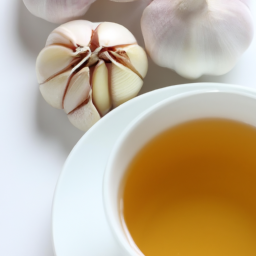
The choice between fresh and dried garlic in tea can affect both its flavor and health benefits. Fresh garlic, known for its pungency and strong flavor, is often preferred for its higher concentration of allicin. This compound is most potent in fresh garlic, offering maximum health benefits when used in tea.
Dried garlic, on the other hand, offers a more mellow and less pungent flavor. Caffeine-Free Beverage While it may have slightly lower levels of allicin, it still retains many of garlic’s beneficial properties. Dried garlic is also convenient and can be a good alternative when fresh garlic is not available.
Ultimately, the choice depends on personal preference and availability. Both fresh and dried garlic can make a healthful and flavorful tea, each bringing its unique qualities to the brew.
Garlic tea is gaining popularity as a natural aid in weight loss efforts. Its potential to boost metabolism and aid in fat burning makes it an appealing addition to a weight loss diet. Regular consumption of garlic tea can also help in regulating appetite, potentially leading to reduced calorie intake.
The compounds in garlic, particularly allicin, are thought to have thermogenic properties that increase metabolic rate. This can enhance the body's ability to burn fat more efficiently. Additionally, the natural diuretic effect of garlic helps in reducing water retention, contributing to weight management.
While garlic tea can be a supportive element in a weight loss regimen, it should be accompanied by a balanced diet and regular exercise. It's not a standalone solution but can complement other healthy lifestyle choices.
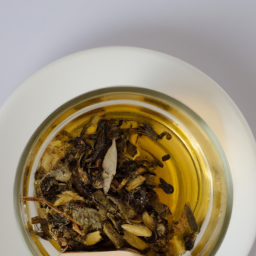
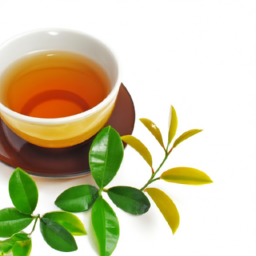
Garlic tea is renowned for its rich antioxidant properties, primarily due to compounds like allicin. Holistic Health These antioxidants play a vital role in protecting the body from oxidative stress and free radical damage, which are linked to chronic diseases and aging. Regular consumption of garlic tea can contribute to overall health and longevity.
The antioxidants in garlic tea also have anti-inflammatory effects, helping to reduce inflammation in the body.
Incorporating garlic tea into your daily routine is a simple way to boost your antioxidant intake. Its natural composition makes it a healthful choice, offering protective benefits against a range of health issues while supporting overall well-being.
Garlic tea holds a special place in many cultures around the world, revered for its medicinal properties and unique flavor. In traditional medicine, it has been used for centuries to treat a variety of ailments, reflecting its deep-rooted significance in health and wellness practices.
The use of garlic in herbal teas varies from culture to culture, each with its unique preparation methods and rituals.
Understanding the cultural significance of garlic tea enriches the experience of consuming it. It connects individuals to a long history of herbal medicine and the shared human quest for natural health remedies. Enjoying garlic tea can thus be a way of honoring these rich cultural traditions and appreciating the time-tested wisdom they represent.
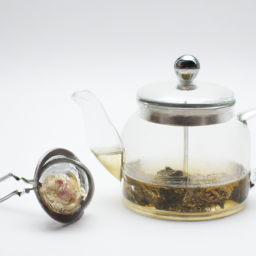
Garlic tea offers a range of health benefits due to its rich content of antioxidants and compounds like allicin. It's known for boosting the immune system, reducing inflammation, aiding in heart health by managing blood pressure and cholesterol levels, and it may also have antibacterial and antiviral properties. Additionally, it can aid in digestion and respiratory health, and some suggest it might help in weight management.
Garlic tea might aid in weight loss as part of a balanced diet and healthy lifestyle. Garlic can boost metabolism and help in regulating appetite, but it should not be relied on as a sole method for weight loss.
Garlic tea is generally well-tolerated, but in some cases, it can cause side effects such as bad breath, body odor, an upset stomach, or heartburn, especially when consumed in large quantities. It's advised to start with a small amount to see how your body reacts.